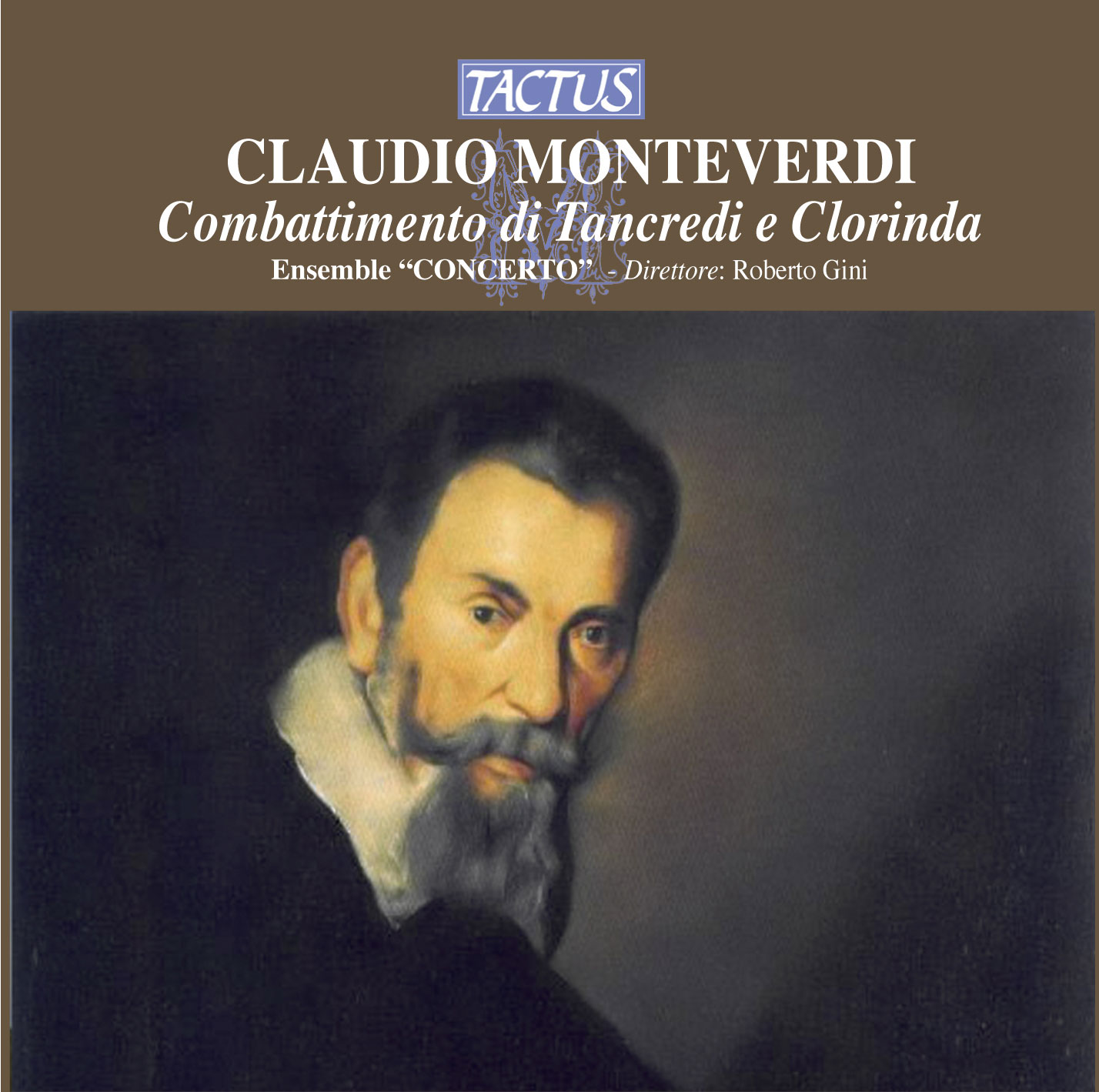MONTEVERDI CLAUDIO
Monteverdi first used the term “in genere rappresentativo” in his published works to describe two compositions (the two Lettere amorose) in his Concerto, Settimo libro de madrigali (Seventh Book, 1619); these were later republished in 1623 together with the Lamento d’Arianna – a work of explicitly theatrical origin – in a small solo anthology.
The same term is used again in the Madrigali guerrieri et amorosi (1638), in which we find “a number of works in genere rappresentativo which provide brief episodes among the unstaged songs”. Among these is the Combattimento di Tancredi e Clorinda, performed in palazzo Mocenigo during the carnival of 1624 “as an evening entertainment” in the manner described in the instructions included in the edition.
The text used was an episode from Tasso’s Gerusalemme liberata (canto XII ottave 52-62 and 64-68), with some contaminations from the Conquistata.
Like other contemporary composers (Sigismondo d’India in 1621, Biagio Marini in 1623, Francesco Eredi in 1629), Monteverdi made use of this or that page of Tasso’s great epic poem. In the preface to his Libro ottavo, it is the composer himself who explains the reasons for his choice: “I took hold of the divine Tasso, a poet who expresses with propriety and complete naturalness in his works those passions that he wishes to describe, and I found his description of the combat between Tancredi and Clorinda, so as to have the two contrasting passions of war, prayer and death to put into song”.
Here we have an epic rather than a dramatic text in which the infrequent speeches of the protagonists are linked together by the figure of the narrator, whose role is by far the most important of the three.
Tracklist
Monteverdi, Claudio
Settimo Libro dei Madrigali (1619)
1 - Tempro la cetra (10:34)
Scherzi Musicali (1632)
2 - Quel squardo sdegnosetto (2:17)
Settimo Libro dei Madrigali (1619)
3 - Interrotte speranze (4:12)
Nono Libro dei Madrigali (1651)
4 - Bel Pastore (5:35)
Settimo Libro dei Madrigali (1619)
5 - Con che soavità (4:59)
Scherzi Musicali (1632)
6 - Et è pur dunque vero (8:13)
Ottavo Libro dei Madrigali (1638)
7 - Combatimento di Tancredi e Clorinda (20:49)
- Composer: MONTEVERDI CLAUDIO
- Performers: Soprano: Cettina Cadelo Tenori : Carlo Gaifa, Vincenzo Manno Ensemble “CONCERTO” Violin i: Luigi Mangiocavallo ed Enrico Onofri Viole da gamba : Alberto Rasi, Paolo Biordi, Stefano Bachi Violone : Paolo Rizzi ; Violoncello : Nicola Baroni Flauto dritto : Giovanni Antonini; Arciliuto : Maurizio Martelli; Liuto : Roberto Gallina. CONTINUO Violoncello : Caterina dell’Agnello; Arciliuto : Paul Beier; Clavicembalo : Roberto Gini Direttore: Roberto Gini
- Historical Period: Humanism and Renaissance
- Code: TC 561301
- Edition: 1987
- Barcode: 8007194100037
- Set: 1
- Total tracks: 7
- Total duration: 00:56:39






